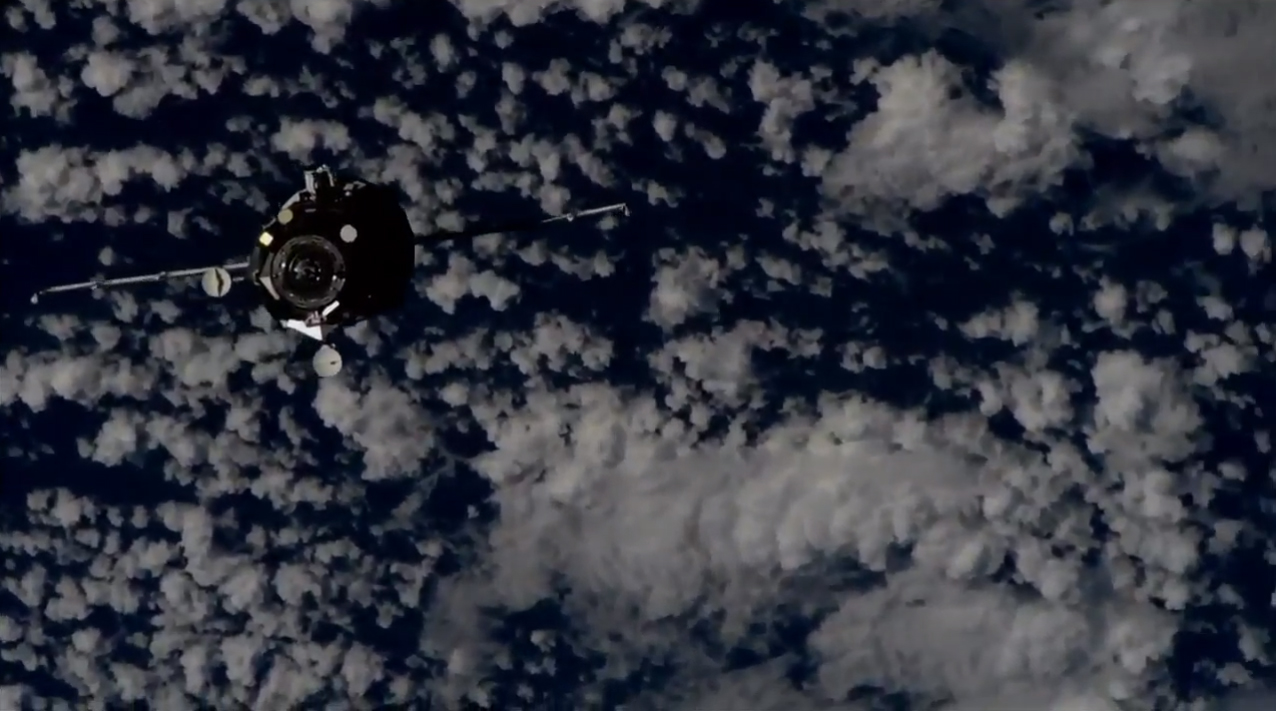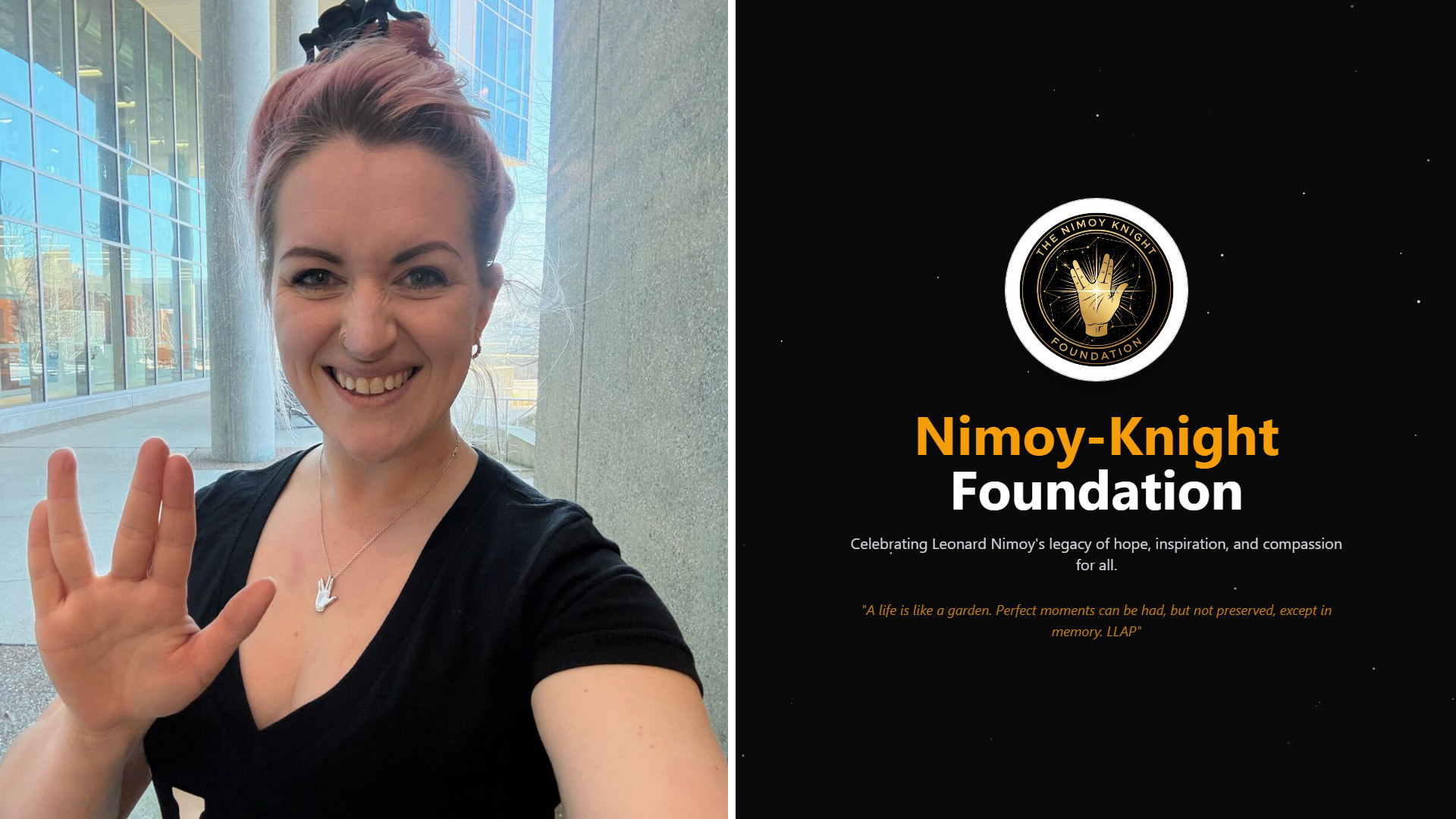Robotic Russian Cargo Ship Delivers Tons of Supplies to Space Station

Breaking space news, the latest updates on rocket launches, skywatching events and more!
You are now subscribed
Your newsletter sign-up was successful
Want to add more newsletters?

Delivered daily
Daily Newsletter
Breaking space news, the latest updates on rocket launches, skywatching events and more!

Once a month
Watch This Space
Sign up to our monthly entertainment newsletter to keep up with all our coverage of the latest sci-fi and space movies, tv shows, games and books.

Once a week
Night Sky This Week
Discover this week's must-see night sky events, moon phases, and stunning astrophotos. Sign up for our skywatching newsletter and explore the universe with us!

Twice a month
Strange New Words
Space.com's Sci-Fi Reader's Club. Read a sci-fi short story every month and join a virtual community of fellow science fiction fans!
An uncrewed Russian cargo ship linked up with the International Space Station Sunday (Nov. 18) to deliver nearly 3 tons of supplies for the orbiting lab.
The resupply ship, called Progress 71, docked at the space station at 2:28 p.m. EST (1928 GMT) as both spacecraft sailed 252 miles (405 kilometers) over Algeria. Progress 71 launched into orbit Friday (Nov. 16) from Baikonur Cosmodrome in Kazakhstan.
"A textbook journey for the Progress," NASA spokesperson Rob Navias said during live commentary. [The Space Station's Robotic Cargo Ship Fleet in Pictures]
Russian cosmonaut Sergey Prokopyev, an Expedition 57 flight engineer on the station, watched over Progress 71's arrival with care, ready to take remote control if necessary. But the cargo ship performed flawlessly, parking itself at the aft end of the station's Russian-built Zvezda service module.
Progress 71 delivered 5,654 pounds (2,564 kilograms) of food, fuel and other supplies for the station's Expedition 57 crew. That haul includes: 2,866 pounds (1,300 kg) of dry cargo such as food and experiment gear; 1,653 pounds (750 kg) of propellant; 970 pounds (440 kg) of water; 122.2 pounds (55 kg) of oxygen; and 53 pounds (24 kg) of air.
The launch of Progress 71, which lifted off on a Soyuz FG booster, sets the stage for the first launch of a new crew to the station since the Oct. 11 failure of a similar rocket forced an in-flight abort and emergency landing for American astronaut Nick Hague and Russian cosmonaut Alexey Ovchinin. The two men were unharmed and Russia's space agency Roscosmos traced the failure to a faulty sensor on one of the rocket's boosters.
With Progress 71's successful launch, Roscosmos officials are now confident its Soyuz FG boosters are once again ready to carry human crews. The upcoming flight, set for Dec. 3, will carry three new crewmembers to the station: American Anne McClain, Russian Oleg Kononenko and Canadian David Saint-Jacques. The trio for join three others still aboard (German Alexander Gerst, American Serena Auńon-Chancellor and Prokopyev).
Breaking space news, the latest updates on rocket launches, skywatching events and more!
Progress 71's docking comes one day ahead of another cargo ship, an uncrewed Cygnus spacecraft, that will arrive at the station early Monday (Nov. 19) to deliver about 7,400 pounds (3,357 kg) of supplies. A Northrop Grumman Antares rocket launched the Cygnus early Saturday (Nov. 17) from a pad at NASA's Wallops Flight Facility on Wallops Island, Virginia.
You can watch the Cygnus arrive at the station live here, courtesy of NASA TV. NASA's webcast will begin at 4 a.m. EST (0900 GMT), with astronauts expected to capture the Cygnus by 5:20 a.m. EST (1020 GMT).
Email Tariq Malik at tmalik@space.com or follow him @tariqjmalik. Follow us @Spacedotcom and Facebook. Original article on Space.com.

Tariq is the award-winning Editor-in-Chief of Space.com and joined the team in 2001. He covers human spaceflight, as well as skywatching and entertainment. He became Space.com's Editor-in-Chief in 2019. Before joining Space.com, Tariq was a staff reporter for The Los Angeles Times covering education and city beats in La Habra, Fullerton and Huntington Beach. He's a recipient of the 2022 Harry Kolcum Award for excellence in space reporting and the 2025 Space Pioneer Award from the National Space Society. He is an Eagle Scout and Space Camp alum with journalism degrees from the USC and NYU. You can find Tariq at Space.com and as the co-host to the This Week In Space podcast on the TWiT network. To see his latest project, you can follow Tariq on Twitter @tariqjmalik.
